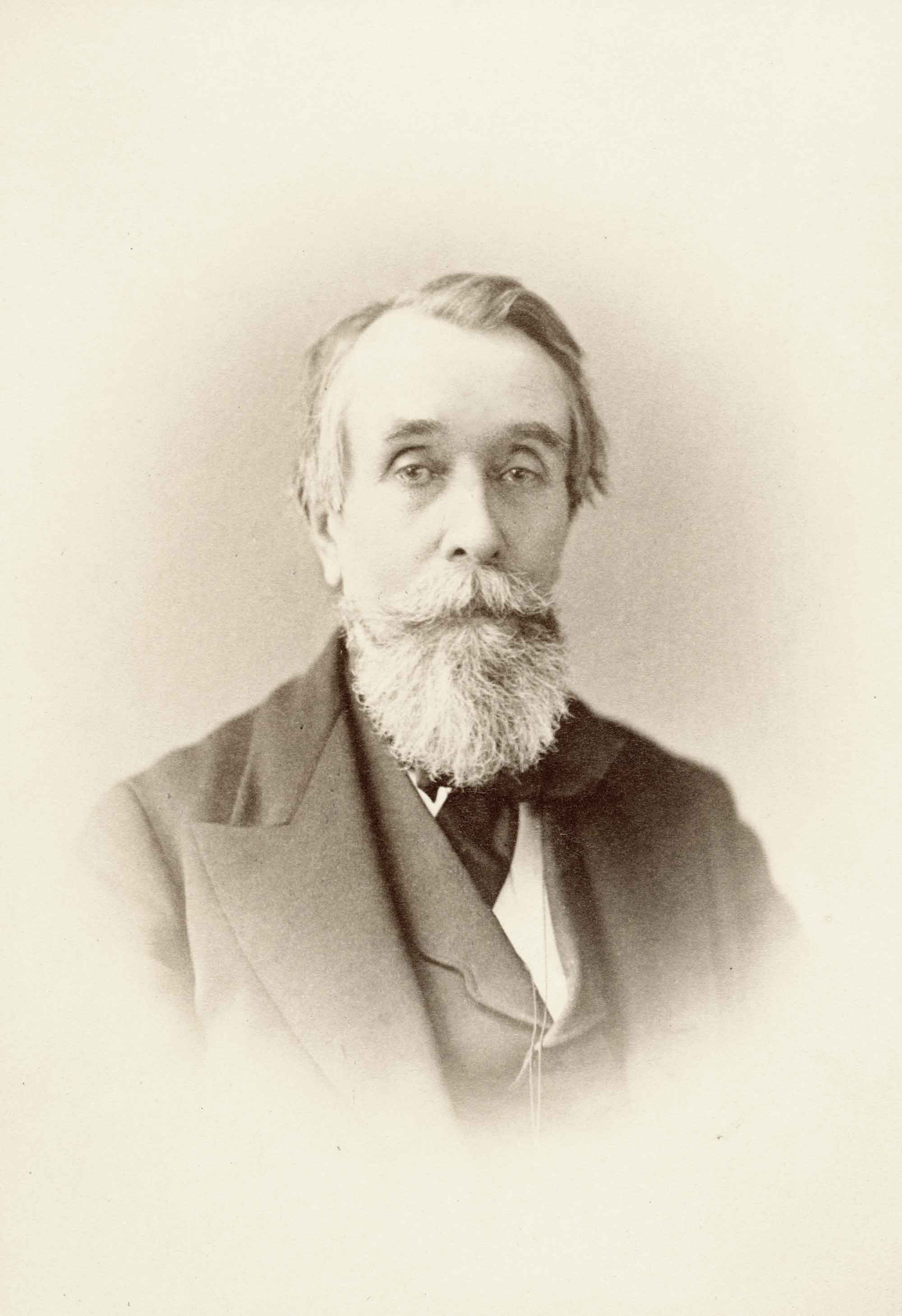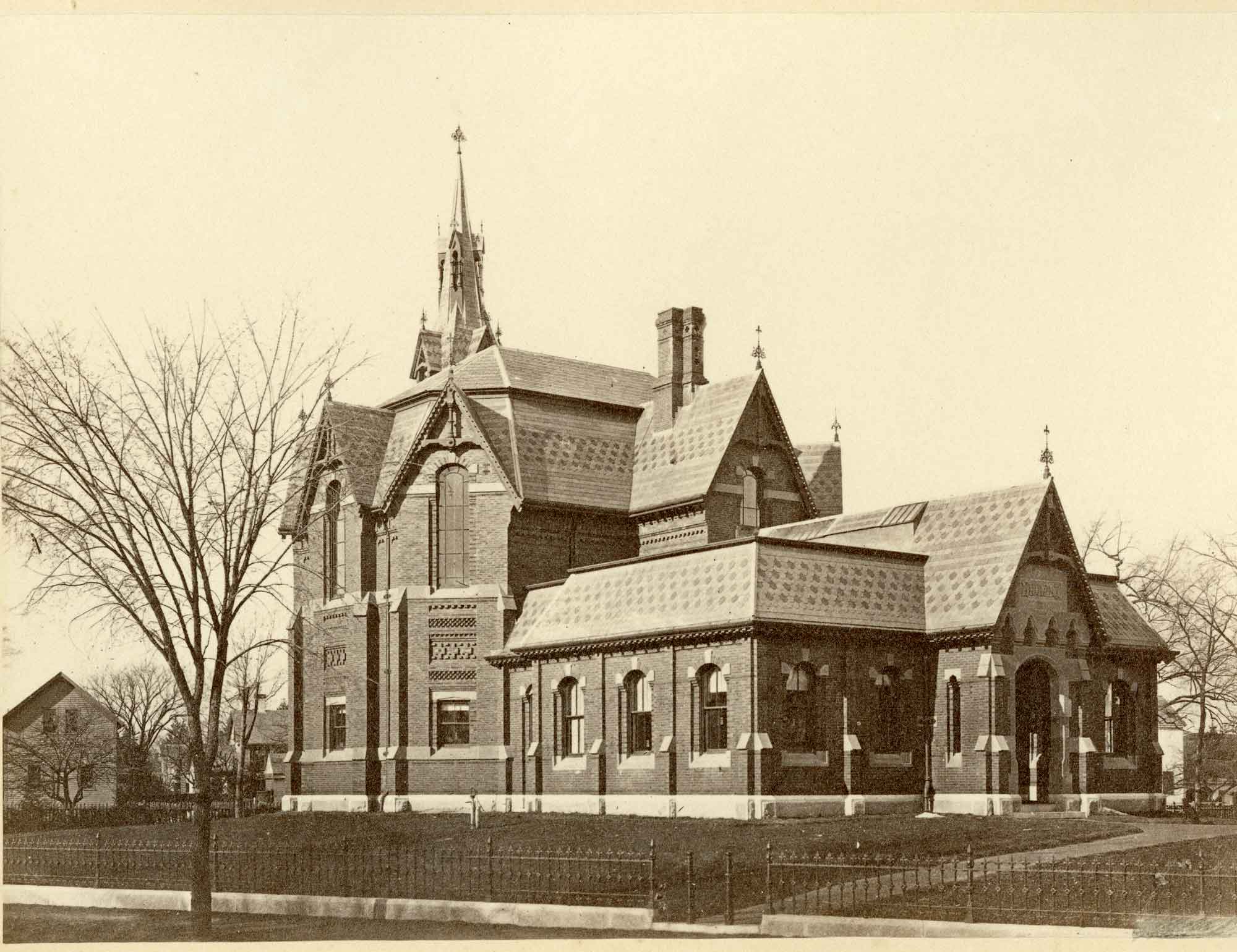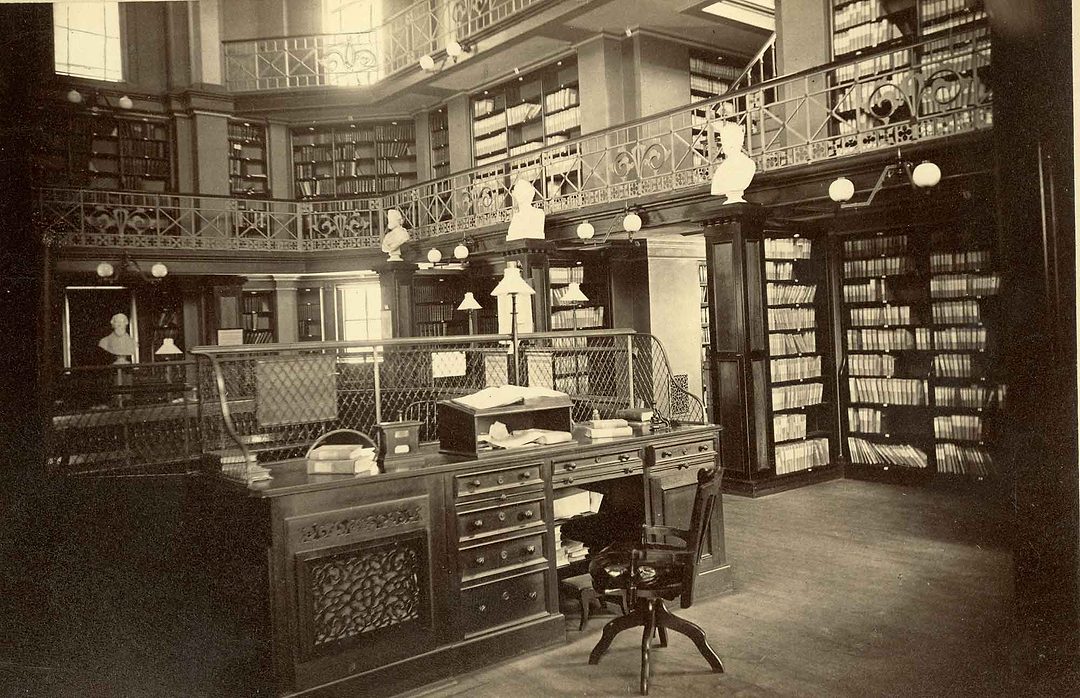As the Concord Free Public Library celebrates its 150th anniversary, we reflect on some important historical moments.
William Munroe (1806-1877) was the son of pencil maker and cabinetmaker William Munroe (1778–1861) of Concord. He was also the founder and primary benefactor of the Concord Free Public Library. The younger William was born in Concord in 1806 and entered the dry goods and textile business in Boston, New York, and abroad, where he made his fortune. Just before the Civil War, William retired and returned to Boston but spent time at his family’s home on the corner of Main Street and Academy Lane in Concord every summer. At this time in his life, the idea of a new library took shape, one that would build on the long tradition of libraries in Concord.

William Munroe (1806-1877)
| Courtesy of the Concord Free Public LibraryConcord’s first library, the Charitable Library Society, was formed in 1795 and was a subscription library supported by membership fees. In 1821, the collection and membership were absorbed into the new Concord Social Library. The new library was a proprietary model owned jointly and operated by shareholders—a model common in New England then.
In 1851, the Commonwealth passed an act to authorize Massachusetts cities and towns to establish and maintain public libraries. Concord approved the creation of the Concord Town Library, its first public library, that same year. Without a permanent location, the Library kept its collection, which began with approximately 1,300 books from the Concord Social Library, first in the Court House and then in the Town House on Monument Square.
The Concord Town Library was a modest operation. At its most significant, it consisted of 7,000 volumes and did not have a building of its own. William Munroe initially thought to provide for the Concord Town Library in his will. As time passed, though, Munroe felt that Concord, with its rich historical and literary heritage, deserved something better.

Concord Free Public Library (front of building) 1873 by Augustine H. Folsom
| Courtesy of the Concord Free Public LibraryMunroe concluded that the Library would need to sit near the center of town if it were to be the center of Concord’s culture and history. However, a house built by James Holden in 1740 and occupied by one of Concord’s most prominent residents, lawyer Nathan Brooks, his wife, abolitionist Mary Merrick Brooks, and their son, George Merrick Brooks, stood on the lot that Munroe preferred. Munroe bought the central part of the library lot at the Main Street and Sudbury Road intersection from George Brooks in 1869 for four thousand dollars. Brooks soon moved his family’s home to Hubbard Street, where it still stands today.
The lot provided a central and accessible location for the planned Library building as Munroe had envisioned and allowed for future expansion. To that end, Munroe also purchased land behind the Brooks property, made the necessary legal arrangements with abutters to prevent new construction between their homes and the library lot, and arranged for specific road improvements connected with the project—in particular, the widening of Main Street from the corner of Walden Street west to the library site.
Having solicited plans from several respected architects, Munroe chose the Boston firm of Snell & Gregerson to design the Library. Construction began in 1872 and the Library was dedicated on October 1, 1873, featuring a keynote address by Ralph Waldo Emerson at the Town House and other festivities. The Fowler branch of the Concord Free Public Library, designed by architect Harry B. Little, was dedicated in 1930.
Munroe devoted much effort to planning a form of management that would ensure his Library’s viability and long-term growth. He was directly responsible for setting up the administrative structure by which the Concord Free Public Library is still governed today. The Library is supported by a combination of public and private funding and managed through the mutual efforts of a nonprofit corporation and a municipal library committee. Furthermore, from the beginning, the Library has been committed to fulfilling functions well beyond the traditional definition of what a public library does, including maintaining valuable manuscripts, archival records, books, photographs, and artwork (what we now know as Special Collections).
Even as the Concord Free Public Library has changed, there has been a continuing recommitment to the high standards of its founder and the idealistic aims that informed its establishment. William Munroe understood that growth and change were vital to long-term institutional health, and he had the foresight to provide for them strategically and financially. Thanks to William Munroe’s vision, the last 150 years attest to the fact that, with sufficient planning, valued resources and services may be preserved and transformed.


